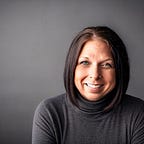Curriculum Will Not Save Your Schools
Twenty years ago we had not fully grasped that information is not the same as knowledge. We did not yet realize that information and discrete skills do not equate to competence. We were stuck in the frame of mind that if we push kids through a day of reading, writing, and math they would walk out of our educational institutions with the prowess necessary to succeed.
We wanted our kids to have knowledge. We wanted our kids to be smart. We wanted our kids to get good grades, high test-scores, and high class-rankings. We wanted Dean’s list kids.
If we were lucky we got all of those things. Our school days were wrapped in bows of discrete knowledge, practice without purpose, and work without relevance. How could we not achieve all of those things? We put information in and our kids pushed information (in the exact same format) out. But somewhere along the way we lost site of the long-held understanding that knowledge is only truly demonstrated through application in the real world and reflection during and after that application.
Some of the focus on information and discrete skills was a direct result of the curricula that we purchased for our schools. Ten years ago we spent more than 2.95 million dollars each year on curriculum for our public schools. Curriculum mainly includes resources (activities, lessons, assessments, textbooks, pre-published units, etc.). To many teachers, curriculum is the guide to everyday happenings in the classroom. Traditionally (from a very practical standpoint) curriculum was the bible for a teacher, it told you what to teach, when, what lessons to include, etc.
But today we observe curriculum decisions being driven by peer recommendations and non-rigorous evidence. Curriculum isn’t being used to fill the capacity of teaching x-y-z. Rather, curriculum is being vetted based on its relation to the idea of targeted actions.
Targeted actions are those outcomes that schools and districts seek to achieve.
For the past decade targeted actions have been primarily evidence based with evidence being a static measure (most typically a standardized test). Today targeted actions are more diverse and include the integration of key 21st Century skills. Further, these targeted actions are (not so suddenly) about the instruction that students receive, the physical environment where they learn, the purpose and meaning behind any student work; the full student learning experience, if you will.
The one constant through all of these targets is the presence of curriculum; in whatever shape or form it takes. But what if we are using curriculum as a strategy to reform our schools,? What if we are using curriculum as a reform lever when curriculum is not built, organized, intended for, or created for facilitating reform?
“There is increasing momentum behind the idea that curriculum materials, including textbooks, represent a powerful lever for education reform. As funders are lining up and state leaders are increasing their policy attention on curriculum materials, there are some very real challenges to this effort.” — Polikoff, 2018
Recent data suggests that large proportions of teachers utilize adopted curriculum as one tool in their overall toolkit. Parallel research suggests that teachers want formally adopted materials, but they also need professional learning that is focused on standards and inclusive of pedagogy that is backed by learning sciences. Some educational leaders have taken tidbits from How People Learn and placed their full focus on one aspect: deep foundation of factual knowledge. These same leaders have misinterpreted that to mean that we just focus on knowledge. Alas, these leaders have not paid close enough attention to the details. Knowledge is constructed. Knowledge is constructed most effectively through inquiry, application, and reflection. Knowledge is not passively transfused.
Curriculum does not happen in isolation of instructional practice. Maybe that is why we see the greatest effects of curriculum on our weakest teachers? Curriculum does not happen in isolation of assessment practice. Maybe that is why we see that student engagement is better sustained through authentic assessments? Curriculum is not used in isolation of cognition. Maybe that is why we know that high cognitive demand leads to faster, more sustained recall for students?
Does curriculum matter? Yes. Will curriculum serve as the revolutionary tool that pulls our students into high levels of engagement in authentic learning that is purposeful and relevant to students? No.
Education is a people powered system. Curriculum is one tool for every educator out there. If your people aren’t striving for engagement, authenticity, and purpose your problem lies not in your curriculum (or your rhetorical fidelity of implementation) but in your people.
What if we didn’t spend 3 million dollars on curriculum for a year, and we invested all of that money in developing the practices and understanding of learning science for every single teacher in our country? What we fund is what we prioritize in education. Put your money in your people first. Put your money in the factors within curriculum (engaging, authentic learning, authentic assessment, high-cognitive demand, application, reflection, etc.) that make curriculum matter.
Be wise enough to know that no matter what book someone has on the shelf in their classroom, what matters most is the person in that classroom responsible for the engagement of all children in learning.
Our people are what matter most. Have expectations, build to those expectations, strive to those expectations, uphold those expectations, and build your human capital to move beyond those expectations.
As educational leaders we can hand any person a toolkit. What they do with that toolkit relies heavily on how we support, encourage, coach, communicate expectations (not for use of curriculum but practice), and evaluate that use.
Are our educational goals tied to curriculum or teaching? The two are not interchangeable terms.
Curriculum will not save our schools; put more thought into your theory of change if you think that alone can result in the outcomes you strive to achieve.
